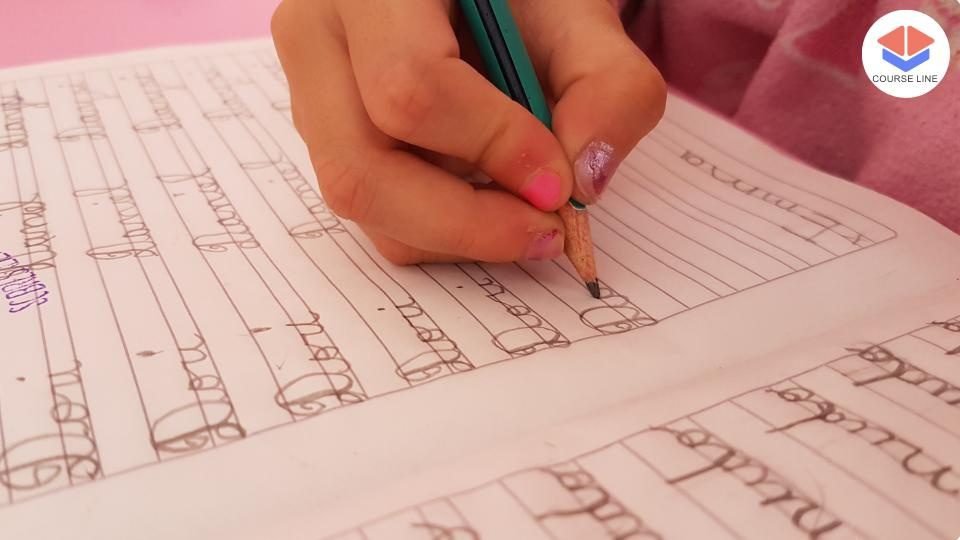Course Features
Price
Study Method
Online | Self-paced
Course Format
Reading Material - PDF, article
Duration
15 minutes
Qualification
No formal qualification
Certificate
At completion
Additional info
Coming soon
- Share
Overview
T Level Science: Laboratory Techniques & Data Handling is a comprehensive qualification that bridges scientific theory with real-world laboratory practice. It begins with an introduction to the role of science in both research and industry, laying a strong foundation in laboratory design, equipment, and safety protocols including COSHH, PPE usage, and risk assessments. Students are introduced to standard operating procedures and learn how to work safely with chemicals and biological materials while maintaining industry-grade quality control.
The course then delves into essential laboratory operations, such as equipment calibration, sample preparation, and good laboratory practice (GLP). Students gain hands-on experience using analytical instruments including microscopes, spectrophotometers, and chromatography systems. Through carefully guided experiments, they learn how to conduct accurate, repeatable investigations using titration, volumetric analysis, and microbiological techniques.
A major focus of the course is the collection, handling, and analysis of scientific data. Students explore the fundamentals of data classification, interpretation, and visualisation through charts, graphs, and tables. Statistical topics such as mean, standard deviation, and hypothesis testing are covered to ensure learners can confidently draw meaningful conclusions from experimental results. Training in writing lab reports and presenting findings to scientific audiences further prepares them for professional roles.
Modern laboratories rely heavily on digital systems, so students also learn how to use Laboratory Information Management Systems (LIMS), maintain digital records, and apply software tools such as Excel and GraphPad for data analysis. Ethical data handling and reporting practices are reinforced throughout the curriculum to meet regulatory and research standards.
By the end of the course, learners will complete a capstone scientific investigation that demonstrates their ability to plan, conduct, and communicate a complete experiment, integrating everything they have learned. This final project simulates real laboratory scenarios and enhances their readiness for industry placements or higher education in science-related fields.
Who is this course for?
T Level Science: Laboratory Techniques & Data Handling is a comprehensive qualification that bridges scientific theory with real-world laboratory practice. It begins with an introduction to the role of science in both research and industry, laying a strong foundation in laboratory design, equipment, and safety protocols including COSHH, PPE usage, and risk assessments. Students are introduced to standard operating procedures and learn how to work safely with chemicals and biological materials while maintaining industry-grade quality control.
The course then delves into essential laboratory operations, such as equipment calibration, sample preparation, and good laboratory practice (GLP). Students gain hands-on experience using analytical instruments including microscopes, spectrophotometers, and chromatography systems. Through carefully guided experiments, they learn how to conduct accurate, repeatable investigations using titration, volumetric analysis, and microbiological techniques.
A major focus of the course is the collection, handling, and analysis of scientific data. Students explore the fundamentals of data classification, interpretation, and visualisation through charts, graphs, and tables. Statistical topics such as mean, standard deviation, and hypothesis testing are covered to ensure learners can confidently draw meaningful conclusions from experimental results. Training in writing lab reports and presenting findings to scientific audiences further prepares them for professional roles.
Modern laboratories rely heavily on digital systems, so students also learn how to use Laboratory Information Management Systems (LIMS), maintain digital records, and apply software tools such as Excel and GraphPad for data analysis. Ethical data handling and reporting practices are reinforced throughout the curriculum to meet regulatory and research standards.
By the end of the course, learners will complete a capstone scientific investigation that demonstrates their ability to plan, conduct, and communicate a complete experiment, integrating everything they have learned. This final project simulates real laboratory scenarios and enhances their readiness for industry placements or higher education in science-related fields.
Requirements
T Level Science: Laboratory Techniques & Data Handling is a comprehensive qualification that bridges scientific theory with real-world laboratory practice. It begins with an introduction to the role of science in both research and industry, laying a strong foundation in laboratory design, equipment, and safety protocols including COSHH, PPE usage, and risk assessments. Students are introduced to standard operating procedures and learn how to work safely with chemicals and biological materials while maintaining industry-grade quality control.
The course then delves into essential laboratory operations, such as equipment calibration, sample preparation, and good laboratory practice (GLP). Students gain hands-on experience using analytical instruments including microscopes, spectrophotometers, and chromatography systems. Through carefully guided experiments, they learn how to conduct accurate, repeatable investigations using titration, volumetric analysis, and microbiological techniques.
A major focus of the course is the collection, handling, and analysis of scientific data. Students explore the fundamentals of data classification, interpretation, and visualisation through charts, graphs, and tables. Statistical topics such as mean, standard deviation, and hypothesis testing are covered to ensure learners can confidently draw meaningful conclusions from experimental results. Training in writing lab reports and presenting findings to scientific audiences further prepares them for professional roles.
Modern laboratories rely heavily on digital systems, so students also learn how to use Laboratory Information Management Systems (LIMS), maintain digital records, and apply software tools such as Excel and GraphPad for data analysis. Ethical data handling and reporting practices are reinforced throughout the curriculum to meet regulatory and research standards.
By the end of the course, learners will complete a capstone scientific investigation that demonstrates their ability to plan, conduct, and communicate a complete experiment, integrating everything they have learned. This final project simulates real laboratory scenarios and enhances their readiness for industry placements or higher education in science-related fields.
Career path
T Level Science: Laboratory Techniques & Data Handling is a comprehensive qualification that bridges scientific theory with real-world laboratory practice. It begins with an introduction to the role of science in both research and industry, laying a strong foundation in laboratory design, equipment, and safety protocols including COSHH, PPE usage, and risk assessments. Students are introduced to standard operating procedures and learn how to work safely with chemicals and biological materials while maintaining industry-grade quality control.
The course then delves into essential laboratory operations, such as equipment calibration, sample preparation, and good laboratory practice (GLP). Students gain hands-on experience using analytical instruments including microscopes, spectrophotometers, and chromatography systems. Through carefully guided experiments, they learn how to conduct accurate, repeatable investigations using titration, volumetric analysis, and microbiological techniques.
A major focus of the course is the collection, handling, and analysis of scientific data. Students explore the fundamentals of data classification, interpretation, and visualisation through charts, graphs, and tables. Statistical topics such as mean, standard deviation, and hypothesis testing are covered to ensure learners can confidently draw meaningful conclusions from experimental results. Training in writing lab reports and presenting findings to scientific audiences further prepares them for professional roles.
Modern laboratories rely heavily on digital systems, so students also learn how to use Laboratory Information Management Systems (LIMS), maintain digital records, and apply software tools such as Excel and GraphPad for data analysis. Ethical data handling and reporting practices are reinforced throughout the curriculum to meet regulatory and research standards.
By the end of the course, learners will complete a capstone scientific investigation that demonstrates their ability to plan, conduct, and communicate a complete experiment, integrating everything they have learned. This final project simulates real laboratory scenarios and enhances their readiness for industry placements or higher education in science-related fields.
-
-
- Premium Certificate 00:15:00

No Reviews found for this course.
Is this certificate recognized?
Yes, our premium certificate and transcript are widely recognized and accepted by embassies worldwide, particularly by the UK embassy. This adds credibility to your qualification and enhances its value for professional and academic purposes.
I am a beginner. Is this course suitable for me?
Yes, this course is designed for learners of all levels, including beginners. The content is structured to provide step-by-step guidance, ensuring that even those with no prior experience can follow along and gain valuable knowledge.
I am a professional. Is this course suitable for me?
Yes, professionals will also benefit from this course. It covers advanced concepts, practical applications, and industry insights that can help enhance existing skills and knowledge. Whether you are looking to refine your expertise or expand your qualifications, this course provides valuable learning.
Does this course have an expiry date?
No, you have lifetime access to the course. Once enrolled, you can revisit the materials at any time as long as the course remains available. Additionally, we regularly update our content to ensure it stays relevant and up to date.
How do I claim my free certificate?
I trust you’re in good health. Your free certificate can be located in the Achievement section. The option to purchase a CPD certificate is available but entirely optional, and you may choose to skip it. Please be aware that it’s crucial to click the “Complete” button to ensure the certificate is generated, as this process is entirely automated.
Does this course have assessments and assignments?
Yes, the course includes both assessments and assignments. Your final marks will be determined by a combination of 20% from assignments and 80% from assessments. These evaluations are designed to test your understanding and ensure you have grasped the key concepts effectively.
Is this course accredited?
We are a recognized course provider with CPD, UKRLP, and AOHT membership. The logos of these accreditation bodies will be featured on your premium certificate and transcript, ensuring credibility and professional recognition.
Will I receive a certificate upon completion?
Yes, you will receive a free digital certificate automatically once you complete the course. If you would like a premium CPD-accredited certificate, either in digital or physical format, you can upgrade for a small fee.
Course Features
Price
Study Method
Online | Self-paced
Course Format
Reading Material - PDF, article
Duration
15 minutes
Qualification
No formal qualification
Certificate
At completion
Additional info
Coming soon
- Share
Credit Control Level 8 Advanced Diploma
Course Line237₩918,679.44Original price was: ₩918,679.44.₩28,104.09Current price is: ₩28,104.09.ABRSM Music Theory Grades 1–3: Notation, Rhythm & Key Signatures
Course Line237₩918,679.44Original price was: ₩918,679.44.₩28,104.09Current price is: ₩28,104.09.Interpreter Level 8 Advanced Diploma
Course Line240₩918,679.44Original price was: ₩918,679.44.₩28,104.09Current price is: ₩28,104.09.
Related Courses
T Level Digital Business Services: Analytics & Insight Essentials
₩918,679.44Original price was: ₩918,679.44.₩28,104.09Current price is: ₩28,104.09. 237
237T Level Construction: Design, Surveying & the Built Environment
₩918,679.44Original price was: ₩918,679.44.₩28,104.09Current price is: ₩28,104.09. 237
237T Level Accounting: Principles of Finance & Record-Keeping
₩918,679.44Original price was: ₩918,679.44.₩28,104.09Current price is: ₩28,104.09. 237
237
Related Courses
T Level Digital Business Services: Analytics & Insight Essentials
₩918,679.44Original price was: ₩918,679.44.₩28,104.09Current price is: ₩28,104.09. 237
237T Level Construction: Design, Surveying & the Built Environment
₩918,679.44Original price was: ₩918,679.44.₩28,104.09Current price is: ₩28,104.09. 237
237T Level Accounting: Principles of Finance & Record-Keeping
₩918,679.44Original price was: ₩918,679.44.₩28,104.09Current price is: ₩28,104.09. 237
237








